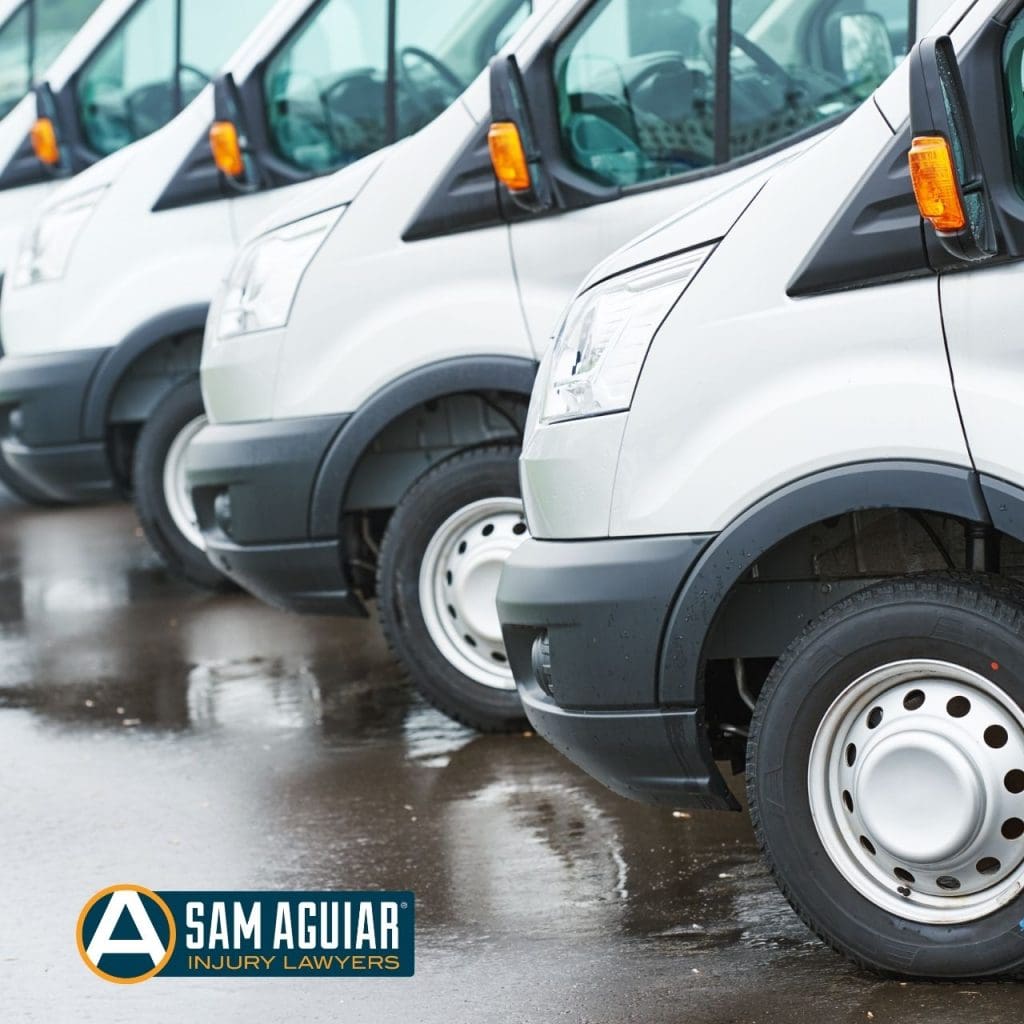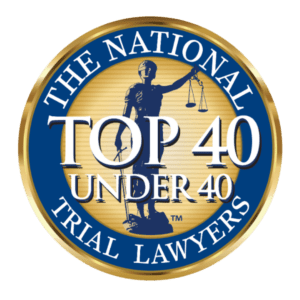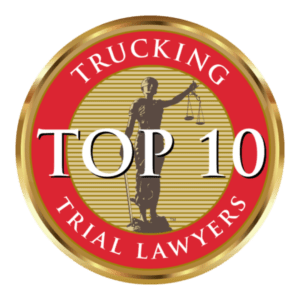Protecting Your Rights Against Big Companies and Insurers
Accidents involving commercial vehicles—semi-trucks, delivery vans, tractor-trailers—can be overwhelming. These are not your typical fender-benders. They often result in severe injuries and involve a complex web of legal and insurance processes that can make it difficult for victims to receive fair compensation. You’re up against large trucking and delivery companies with vast resources, experienced legal teams, and insurance adjusters trained to minimize payouts. They might use tactics like rapid response teams that arrive quickly at the accident scene, independent medical exams (IMEs) with doctors they’ve chosen, and even surveillance to weaken your claim. Knowing the right steps after a commercial vehicle accident is crucial to safeguard your rights, hold these powerful entities accountable, and secure the compensation you deserve. This guide will walk you through essential steps after a commercial vehicle accident in Kentucky, emphasizing the role of accident reconstruction and the importance of legal support to counter industry tactics.
Complexities of Commercial Vehicle Accidents
Unlike typical car accidents, commercial vehicle crashes often involve a complex web of insurance policies. You might be dealing with the driver’s personal insurance, the trucking company’s liability insurance, and even separate insurance covering the cargo. Navigating these policies and the added layer of Federal Motor Carrier Safety Regulations (FMCSR) requires specialized legal expertise. These federal regulations govern various aspects of the trucking industry, including driver hours of service, vehicle maintenance, and cargo securement. Violations of these regulations can be key evidence in establishing negligence.
Ensure Safety and Call for Help
Prioritize your safety and that of others involved immediately after the accident:
Check for Injuries: Assess yourself and others for injuries. If anyone is hurt, call 911 for medical assistance.
Move to a Safe Area: If possible, move to a safer spot to avoid further danger. Activate your hazard lights to alert other drivers.
Contact Law Enforcement: Regardless of the accident’s severity, a police report will be essential for your insurance claim and any future legal actions.
Gathering Evidence and Documenting the Scene
Commercial vehicle accidents often involve intricate insurance processes, making detailed documentation critical. Remember, the trucking company may dispatch a rapid response team to the scene to gather evidence favorable to them. You need to protect your interests as well.
Exchange Information: Collect the names, contact information, driver’s license numbers, and insurance details of all involved, including the commercial vehicle driver and the companies on any vehicles and trailers. If a DOT number is listed, photograph it if possible.
Photograph the Scene: Capture vehicle damage, road conditions, skid marks, traffic signs, and other relevant details. These visuals are essential for accident reconstruction and can be vital evidence if liability is disputed. Take photos of the truck’s DOT number, any company logos, and the license plates of all vehicles involved.
Get Witness Information: Gather contact information from any witnesses. Their perspectives can significantly counter biased accounts from the other party or their rapid response team.
Role of Accident Reconstruction
Commercial vehicle accidents often require thoroughreconstruction to understand the circumstances thoroughly. This scientific analysis can be the key to proving negligence and countering any attempts by the trucking company to shift blame onto you.
Professional Analysis: Serious accidents may warrant hiring an accident reconstruction expert.
These experts use scientific principles and advanced technology to determine factors like vehicle speed, direction of travel, point of impact, and, ultimately, fault.
Modern Tools: Technologies like 3D modeling and simulation can accurately illustrate the accident’s details, substantially supporting legal proceedings.
Data from the truck’s Event Data Recorder (EDR), or “black box,” is crucial to this process, providing information on speed, braking, and other factors leading up to the crash.
Proving Negligence: A thorough reconstruction can demonstrate, for example, that a truck driver was speeding, made an illegal lane change, or was driving while fatigued, violating hours-of-service regulations.
This evidence is powerful in establishing liability.
Navigating Insurance Claims and Challenges
Legal guidance is vital in commercial vehicle accidents. Insurers and commercial operators often employ tactics to delay or deny rightful compensation.
Kentucky’s No-Fault Laws: Kentucky’s no-fault system means your insurer covers medical expenses regardless of fault, but exceptions under the law allow you to pursue further damages if your injuries meet a certain threshold. An attorney can clarify these nuances and ensure you don’t miss critical deadlines for filing a lawsuit. They will also explain how Kentucky’s pure comparative fault system might affect your claim, where each party is assigned a percentage of fault.
Countering Insurance Company Tactics: Insurers representing large companies might use delay tactics, lowball offers, or recorded statements against you. A lawyer experienced in commercial vehicle accidents can protect your interests and fight for a fair settlement. Remember that trucking companies might even use surveillance to discredit your injury claims.
Preserving Evidence and Advocating in Court: Your attorney will take immediate steps to preserve vital evidence, such as sending a spoliation letter to the trucking company. This crucial legal document demands that they preserve all potential evidence, including driver logs, maintenance records, black box data, and any data from electronic logging devices (ELDs). Without this letter, critical evidence might be lost or destroyed. Your attorney will also advocate in court if a fair settlement cannot be reached.
Notify Your Insurance Company, But Be Cautious
Inform your insurance provider about the accident, but proceed carefully with recorded statements:
Report the Accident: Share all essential details, but avoid discussing fault. Insurance adjusters, especially those working for large trucking companies, may use statements to minimize payouts.
Know Your Coverage: Review your policy, including its coverage limits and any exclusions. This knowledge will be valuable when navigating claims.
Consult an Attorney Before Recorded Statements: Insurance companies can use recorded statements against you. Speak to a legal professional first to avoid unknowingly impacting your case. During these conversations, an attorney can advise you on what to say and how to protect your rights.
Social Media: A Potential Pitfall
Insurance companies may monitor social media to find posts that could undermine your claim. Here’s how to protect your case:
Be Discreet: Avoid discussing the accident online, as insurers may use your posts, even seemingly innocent comments or photos, against you.
Adjust Privacy Settings: Restrict access to your posts to limit what can be viewed publicly.
Follow Legal Guidance: Speak with your attorney about what, if anything, is safe to post regarding your accident.
Focusing on Your Recovery
Finally, prioritize your health and keep detailed records of your recovery and the steps you take to resolve your claim:
Medical Documentation: Follow up on necessary medical care and record all treatments, expenses, and medical reports. This documentation is essential to substantiate your injury claims. Be aware that the insurance company might request an Independent
Medical Examination (IME). It’s important to understand that the doctor performing the IME might be biased towards the insurance company.
Vehicle Repair Coordination: Work with your insurer for vehicle repairs and ensure all damage is properly documented.
Stay Connected with Your Attorney: Communicate openly with your legal team and your insurance company to move your claim forward and address any pending issues.
Why You Need an Experienced Truck Accident Attorney
Commercial vehicle accidents can be daunting, especially with big companies and insurers who use aggressive tactics to protect their bottom line. An experienced Kentucky truck accident attorney can protect your rights and secure a fair outcome. They understand the tactics trucking companies and insurers use, from rapid response teams to attempts to obtain recorded statements that can harm your case. They will fight for your rights every step, from investigating the accident and gathering evidence to negotiating with insurance companies and, if necessary, representing you in court.
You can confidently navigate this challenging process by following these steps and seeking professional guidance.
Don’t face the aftermath of a commercial vehicle accident alone. The Sam Aguiar Injury Lawyers team has extensive experience handling these complex cases. Contact us today at 502-888-8888 (Louisville) or 859-888-8000 (Lexington) for a free consultation. A seasoned Amazon warehouse accident lawyer can coordinate both workers’-comp and third-party claims. We’ll help you understand your rights and fight for the compensation you deserve.









